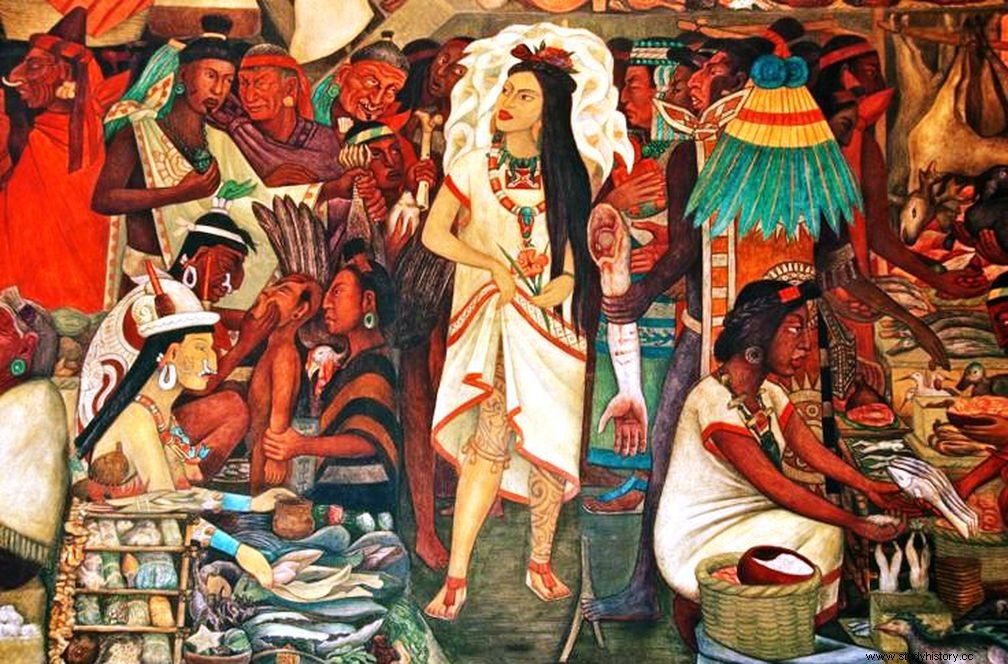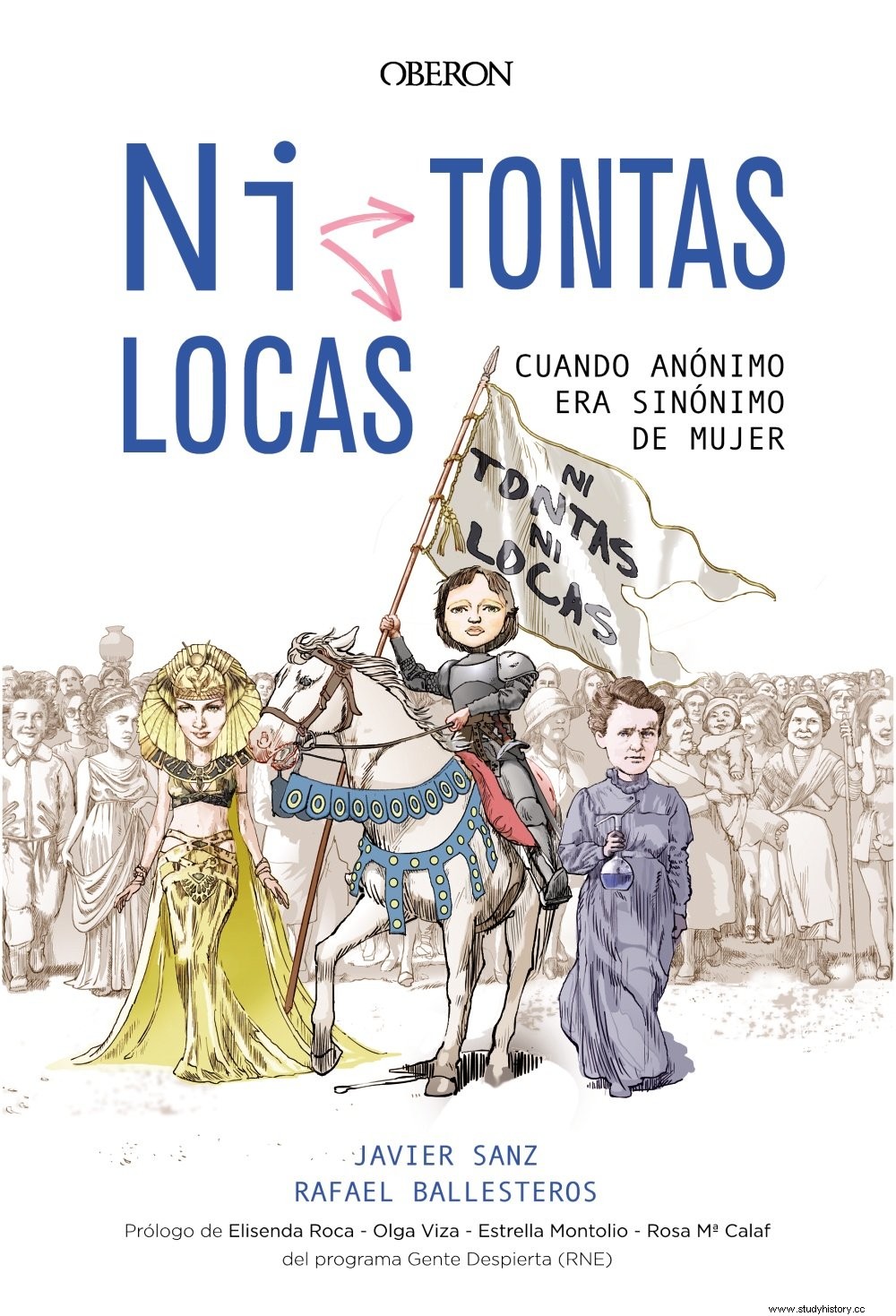Hernán Cortés burned more than his ships in the conquest of Mexico. This mythical episode of leadership was not really his invention. But when Alexander the Great used this tool of persuasion, he did not do it to ensure the loyalty of his men but to motivate them in the face of an unequal battle:there was no choice but to win because in order to return home he would have to do it on the ships of the enemies. Cortés, in fact, did not burn the ships, which would have destroyed them completely, but he made them useless —the chronicles use the term "spin" and "find the ships across"— to avoid desertions and rescued everything from them. could be useful. We know this from the True history of the conquest of New Spain by Bernal Díaz del Castillo —or perhaps by Cortés himself, as a recent study has attempted to demonstrate— and by the History of the Conquest of Mexico by Francisco López de Gómara, a work to which Díaz del Castillo is constantly referring to in order to clarify, correct and increase it. Both stories mention the episode in which the indigenous caciques offer Cortés numerous presents as an offering after a battle, including twenty women. According to Díaz del Castillo:«they brought a gold present, which were four diadems and some lizards and two like little dogs and earmuffs and five ducks and two figures of Indian faces, and two gold soles like their cotaras, and other little things of little value, that I no longer remember how much they were worth. And they brought blankets of the kind they made, which are very coarse, because those who have news of that province will have already heard that there are none in that land but of little value. And all this present was nothing compared to twenty women and among them a very excellent woman...; and according to López de Gómara, there was an exchange of gifts:«he gave them certain gold jewels, rich and well carved, and other things made of feathers, which were not less artifice and strange. Cortes embraced him and received him very happily; and greeting the others, he gave her a silk robe, a medal and a glass necklace, many strings, mirrors, scissors, shoelaces, girdles, shirts and dressers, and other leather, wool and iron trimmings, which are among us of very little value, but they esteem it highly» . Come on, the famous gold for trinkets. Since this meeting took place without saying a word, since Cortés's official interpreter —a certain Jerónimo de Aguilar— did not know that language, «one of those twenty women they gave him in Potonchán appeared on the scene, speaking with the of that governor and he understood them very well, as men of his own language …»; so Cortés was able to communicate with his interlocutors with his mediation. This woman who is expressly mentioned is known in the works as Doña Marina , because such was her name that she received after her conversion to Christianity.

Díaz del Castillo defines her as «that Indian and lady they gave us there; and she was truly a cacica and daughter of great lords and lady of towns and vassals and originally from Tabasco. And she was such an excellent woman and of good language, as I will say later, to this cause she always brought Courteous with her » . López de Gómara says of her that she was the daughter of wealthy parents and that she had been stolen by merchants in time of war and sold as a slave until she came into the hands of the man who handed her over to Cortés who, after understanding her usefulness in the company to which he she was confronted, «he promised her more than freedom if she treated him truthfully between him and those of her land, because she understood them, and he wanted her to be his faraute and secretary» .
The presence of Doña Marina is constant and fundamental for the conquest of Mexico, to the point that Díaz del Castillo affirms that:
Doña Marina knew the language of Guazacualco, which is the language of Mexico, and she knew that of Tabasco, as Jerónimo Aguilar knew that of Yucatán and Tabasco, which is all one. They understood each other well, and Aguilar declared it in Castile to Cortés; It was a great beginning for our conquest. And so all things were done for us, praise be to God, very prosperously. I wanted to declare this because without Doña Marina we could not understand the language of New Spain and Mexico.
And Cortés himself wrote in a letter that after God, we owe this conquest of New Spain to Doña Marina. Until Doña Marina learned Spanish, communication with the indigenous peoples was carried out through word of mouth between four people and three languages:from the local governors to Doña Marina, who translated it into the common language that Jerónimo Aguilar and she knew, and from this to Cortes. Both authors agree in stating that these twenty women were the first baptized Christians in all of New Spain. And also in that Cortés distributed them among his captains, including Doña Marina, delivered to the gentleman Alonso Hernández Puertocarrero; at least until he returned to Castile, and Doña Marina stayed with Cortés in the invaluable role of his translator.
Doña Marina's real name was Malinalli . Malinche It is, in fact, the term with which the indigenous people called Hernán Cortés. In López de Gómara we find:All of them (the cities) were very pleased that Malinxe, as they called her, passed through their land, because they held her in great esteem for having beaten Mexico Tenuchtitlan . And in Díaz del Castillo, at a given moment:I mean how in all the towns we passed through and in others where they had news of us they called Cortés Malinchi, and so I will name him from now on, Malinche, in all the conversations that we have with any Indians, both in this province and in Mexico City, and I will not name him Cortés except in part that is convenient . Díaz del Castillo continues explaining how Malinche's name is due to the fact that, as he was always accompanied by his translator Doña Marina, the ambassadors and chiefs referred to him as the "Captain of the Navy", and, for short, they called him Malinche.

The Mexica empire was the hegemonic power in those lands and many other peoples were subjugated by them or lived under the permanent threat of conquest and submission to the impositions and taxes that arrived from the capital of the empire, Tenochtitlan. Malinalli was not a Mexica, so what she did was adapt to the circumstances and help her people and other neighbors to shake off their submission to the Mexica king Moctezuma, seeking the support of Cortés, who undertook the capture of Tenochtitlan encouraged because he knows that he is supported by numerous indigenous allies. Another very different thing is how the events unfolded and in what conditions of exploitation and dependency the population remained after the end of the conquest. Malinalli had a son with Cortés, named Martín , who is considered the first mestizo son of an explorer born in New Spain. He was separated from his mother as a child, lived in Spain for many years, served in the Court of the crown prince —the future Felipe II— and was a soldier of the Spanish crown. Back in Mexico he was involved in the conspiracy against the New Laws that dispossessed the second generation of the conquerors of all their properties to return them to the Crown. Martin the Mestizo He had a very bad fate, because he was imprisoned, tortured and sentenced to death, a sentence that was commuted by a heavy fine that ruined him and condemned him to exile in the Iberian Peninsula until he died.
Malinali for her part was given by Cortés in marriage to Juan de Jaramillo, with whom she settled in Mexico City and with whom she had another daughter, María Jaramillo . The date of her death is unclear and speculation about her spans a period of more than twenty years. From the Spanish point of view, her intervention was decisive in the conquest, but in Mexico there is no unanimity. The pejorative term "malinchista" is associated with those who appreciate foreigners more than their own, considering that Malinche betrayed her people even though her skills surely prevented the Conquest from being more bloody than it was. But there is also an increasingly widespread opinion that she was a victim run over by a conflict in which she had to navigate and that with her the mestizo culture was born, product of the meeting of two worlds, two cultures, which led to the birth of a nation. .
Source:Neither silly nor crazy, a good gift for this Christmas
,

